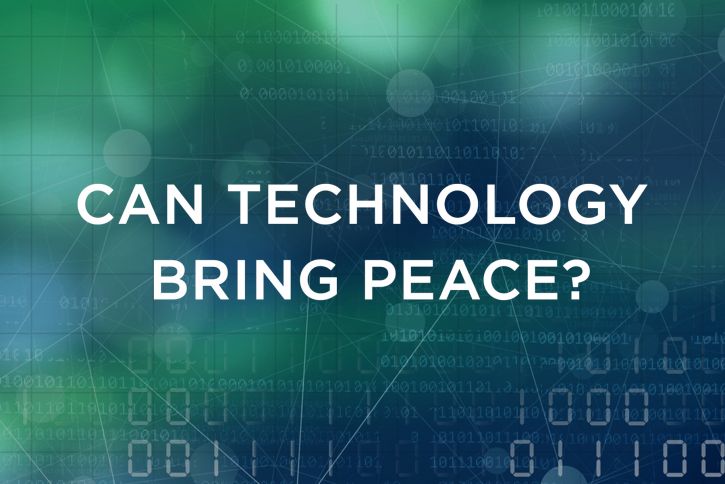
Will Technology Finally Bring World Peace?
Technology's ability to bring world peace has been widely debated, particularly with the rise of artificial intelligence (AI) and global interconnectivity. However, historical evidence suggests technological advancement alone cannot guarantee peace.

Digital connections with green background
The 1858 transatlantic telegraph cable serves as a cautionary tale. Despite predictions that this revolutionary communication technology would herald an era of peace, the world subsequently experienced hundreds of conflicts, including two world wars.
Modern technologies present a double-edged sword. While they can foster global cooperation and understanding, they've also enabled the development of increasingly destructive weapons. The advent of nuclear technology, from atomic fission to fusion, has created unprecedented threats to human survival. Recent developments like Russia's Satan 2 missile and "doomsday" torpedo demonstrate how technology can escalate conflict potential.
The root cause of conflict lies deeper than technological capability. As General Douglas MacArthur noted after World War II, "It must be of the spirit if we are to save the flesh." The apostle James attributes wars and fighting to human selfishness (James 4:1), suggesting that peace requires addressing fundamental human nature rather than merely advancing technology.
While technology can facilitate cooperation and understanding between nations, it cannot independently resolve the underlying spiritual and psychological factors that drive conflict. True peace requires addressing both the technological and human dimensions of international relations.
Key Takeaways:
- Technology alone cannot guarantee peace
- Historical precedents show technological advancement doesn't prevent conflict
- Modern technology can both promote and threaten peace
- Human nature and behavior remain central to achieving lasting peace
- Solutions must address both technological and spiritual aspects of conflict
Related Articles

The Ethics of War: Can Armed Conflict Ever Be Morally Justified?

